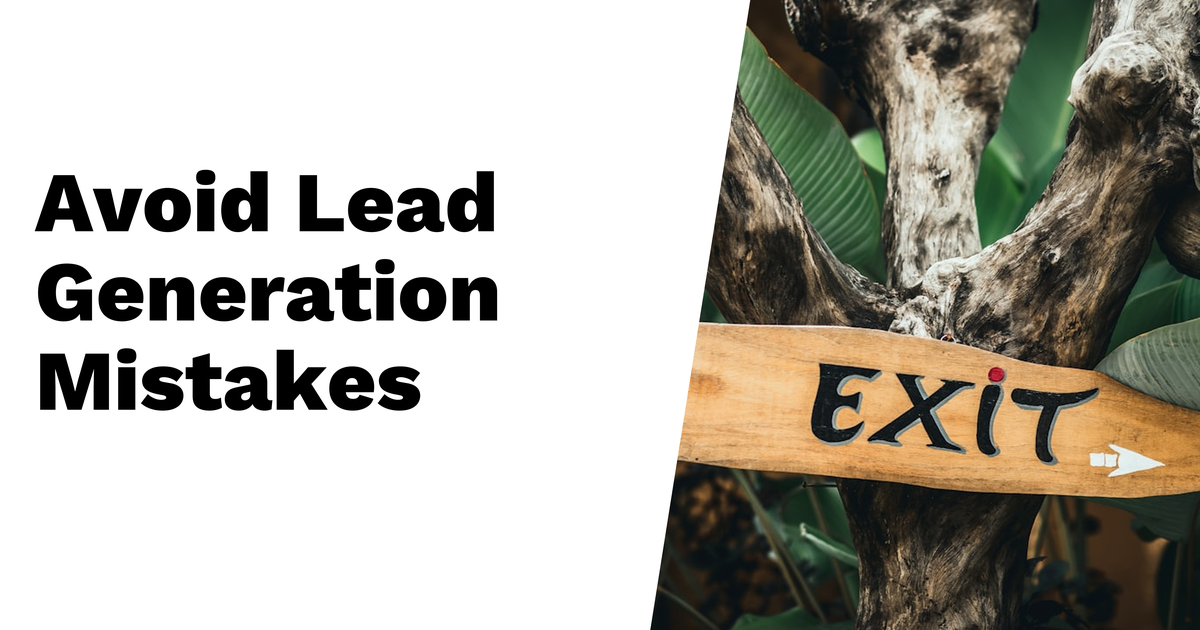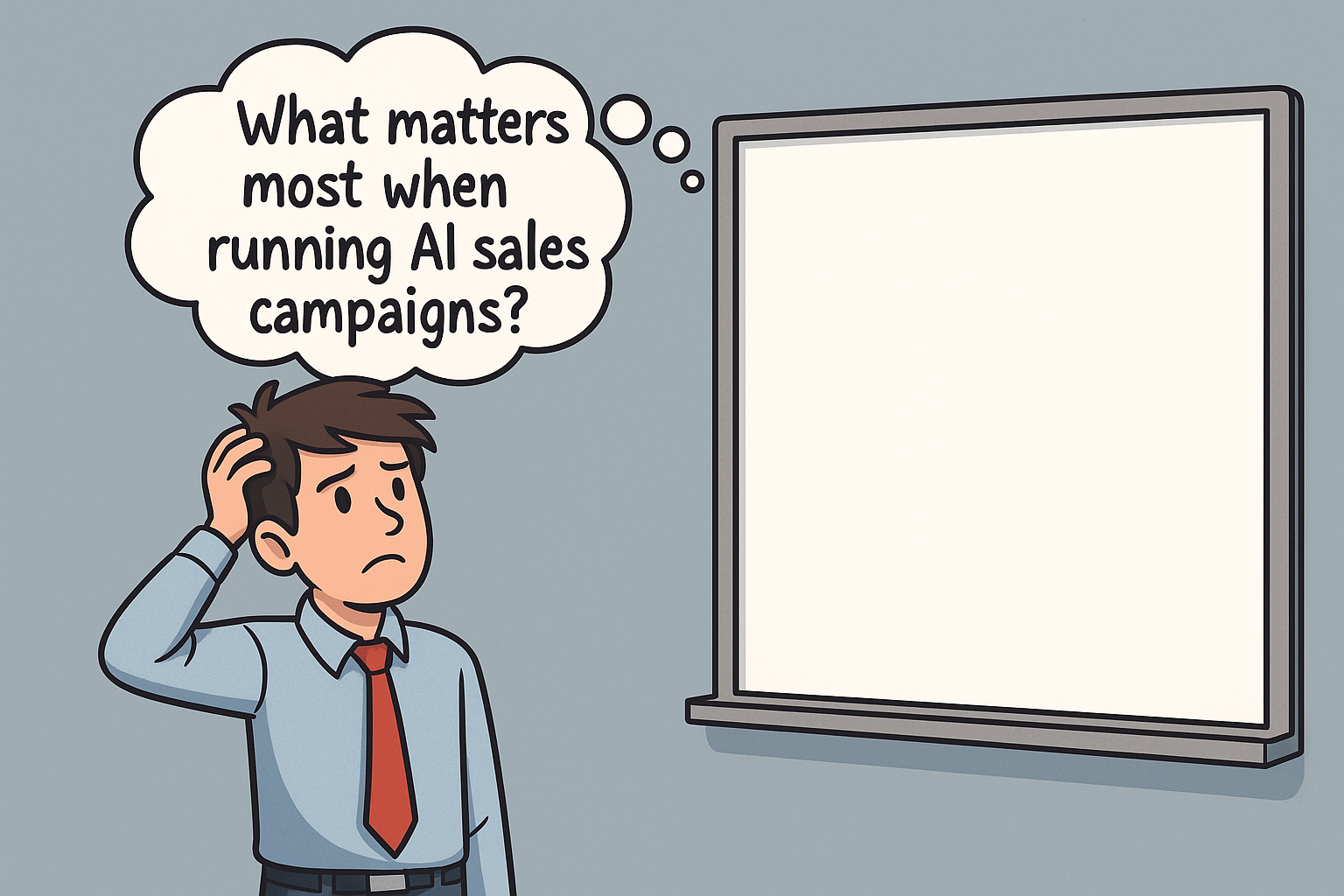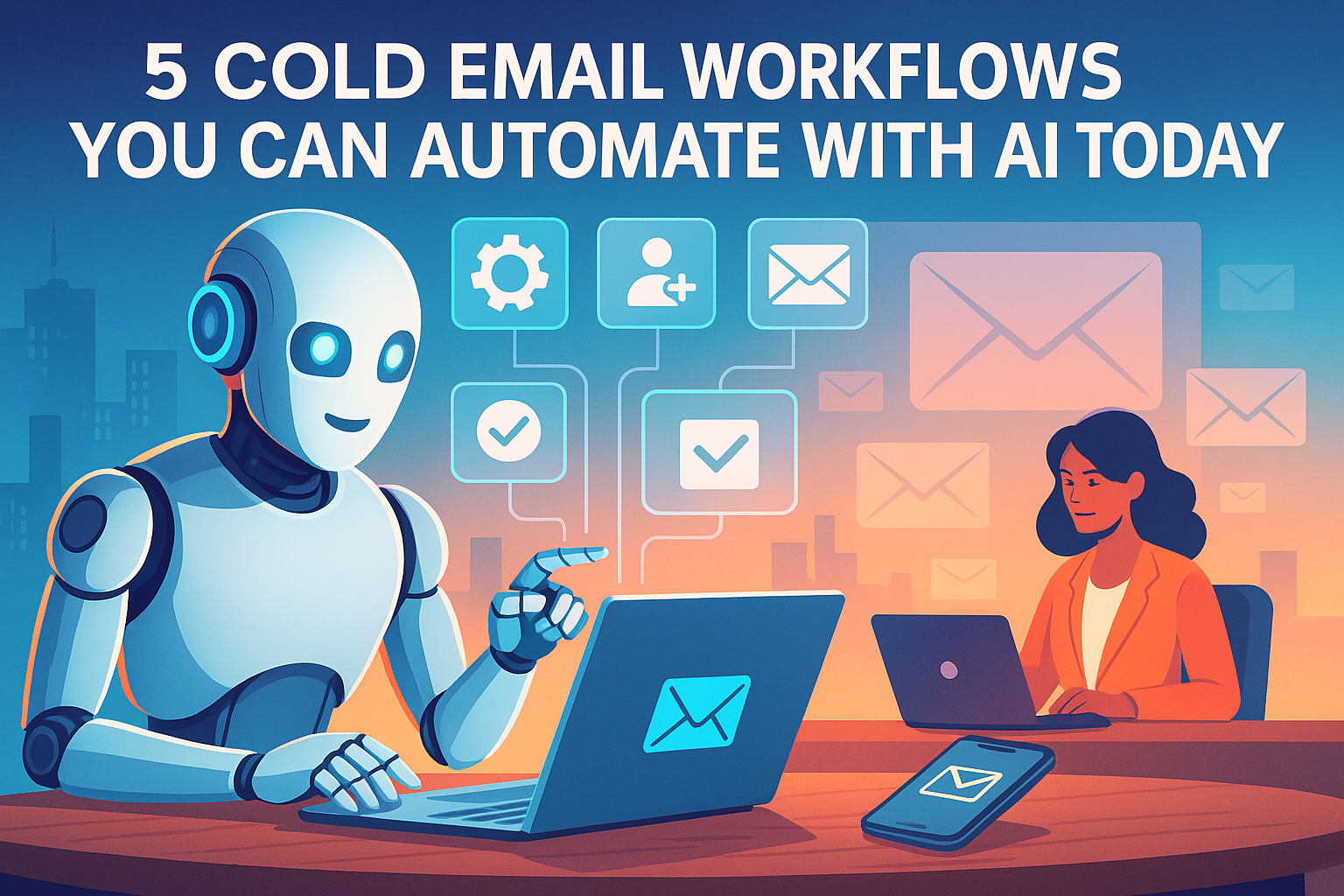The talk of AI Agents leads to the question will they replace humans? Is Valet an Ai Agent?
Will Valet replace people?
The talk of AI Agents leads to two discussion points- replacing humans- creating Agents [btw, guess what you need to build A.I. Agents? Code]
There are some no code options emerging and this will make life easier.Valet is more of a co-pilot at the moment
With a few very specific workflows in mindI think eventually we will teach Valet to create the Agents for youMy idea is it won't replace SDRs, BDRs etcIt will help sales people initially do more without the tech debtTame the SaaS Monster
I see ads for A.I. SDRs, A.I. BDRsThen I go through the product and the approach is mixedSo I think for now we keep working on adding skills to the Valet toolkitNow:
⚡ Two Valet prompts that work well inside of Opps.ai:
👉 "Create a list of companies [ICP description]"
✌ "Create a campaign targeting companies [ICP description]"The format I know works with describing your ICP?
Ideal Client Profile: [industry] + [geography] + [title]What do these requests "do"?1.
Research an ICP resulting in an Opps.ai list2. Create a campaign in Opps+ or Smartlead targeting an ICP listNext up?
☑ Generative Conversational Outreach scripts
You tell Valet your Call To Action, ICP, the problems they have, your solution and some other important details like results you deliver.
It generates messaging and subject lines that can be added to a campaign in Opps+ outreach or Smartlead
☑ Generative LinkedIn Outreach Campaignssimilar to email in Smartlead this will automate the setup of LI outreach
☑ Chrome pluginAllows you to use Valet outside of Opps.ai e.g. while you are searching LinkedIn, while you are in Opps+, Smartlead or CRM etc
☑ CRM skills for Salesforce and HubspotTell Valet to:- create a lead- create a contact- create a Deal/Opportunity- pull a list for a campaign- create a report
All again from generative requests that eliminate the 77% of time reps spend on non selling acitvities
The Rise of AI Agents: Will Valet Replace People?
AI agents have become a cornerstone in discussions around the future of work, and as they gain more functionality, questions arise about their potential to replace humans. On the surface, AI agents seem like a silver bullet—automating tedious tasks, handling vast amounts of data, and executing workflows with incredible efficiency. But there’s a deeper conversation around whether they will outright replace roles, particularly in sales, or become powerful co-pilots that allow human workers to do more with less. In this post, we'll explore what AI agents are, how they’re evolving, and whether tools like Valet will replace or complement roles like Sales Development Representatives (SDRs) and Business Development Representatives (BDRs).
What Exactly Are AI Agents?
At the heart of AI agents is the idea that software can perform tasks or make decisions on behalf of a human user. These agents are not just algorithms that compute, but dynamic tools that can interact with users, perform specific actions, and even learn from feedback. Think of them as digital assistants on steroids, capable of doing everything from booking meetings to managing workflows, all powered by machine learning and automation.
AI agents can be classified into two broad categories:
1. Task-based AI agents: These agents perform specific tasks based on pre-defined rules or training, like sorting emails, managing calendars, or pulling data.
2. Generative AI agents: These take automation to the next level by generating content, such as email drafts, outreach scripts, or marketing copy, all based on minimal input from the user.
In the sales domain, this leads to a relevant question: Could AI agents eventually replace humans in roles like SDRs or BDRs, whose jobs rely on high-volume outreach, engagement, and data management?
The AI Agent Debate: Replacing Humans vs. Empowering Them
The rise of AI agents inevitably brings up the debate about automation replacing humans. On one hand, there are those who argue that as AI becomes more sophisticated, it could handle many of the functions traditionally performed by salespeople—like lead generation, nurturing, and even closing deals. This, of course, sparks fear for many SDRs and BDRs, who worry that they could be automated out of a job.
However, a more nuanced perspective is that AI agents are better suited to complementing human work rather than replacing it. Most salespeople spend a significant amount of their time on non-selling activities like data entry, scheduling, and follow-ups. This is where tools like Valet, integrated with Opps.ai, come into play. Valet doesn’t seek to replace SDRs and BDRs; rather, it acts as a co-pilot, handling the administrative side of things so sales teams can focus on building relationships and closing deals.
Valet: The Co-Pilot for Sales Teams
At the moment, Valet operates more like a co-pilot than a full-fledged replacement for SDRs and BDRs. It streamlines a few very specific workflows but stops short of taking over the entire sales process. The idea behind Valet is to reduce the tech debt that often bogs down sales teams and keeps them from doing what they do best—selling.
For example, two Valet prompts that work well inside of Opps.ai include:
- “Create a list of companies [ICP description]”
- “Create a campaign targeting companies [ICP description]”
These prompts are designed to speed up the research and campaign-building process. Instead of manually pulling a list of companies that fit your Ideal Client Profile (ICP), Valet can do it for you in seconds, giving you a head start on your outreach efforts.
The Ideal Client Profile (ICP) structure follows a simple yet effective format:
- Industry: What sector does the client operate in?
- Geography: Where are they located?
- Title: Who within the company are you targeting?
These prompts translate into actionable steps:
1. Researching an ICP: Valet pulls a list of companies that meet your specified criteria, resulting in an Opps.ai list that’s ready for outreach.
2. Creating a campaign: Valet helps you set up a campaign in Opps+ or Smartlead targeting the companies on your list.
This automation eliminates much of the grunt work associated with sales, but it doesn’t eliminate the need for human sales reps. Instead, it allows them to focus on crafting personalized outreach, building relationships, and closing deals.
The No-Code Revolution: Making AI Agents Accessible
An interesting trend in the world of AI agents is the rise of no-code platforms. Traditionally, building an AI agent required extensive coding knowledge, making it inaccessible to many people. But with no-code solutions, the barrier to entry is dropping. This shift means that more people—especially non-technical users—can start building and deploying AI agents without writing a single line of code.
For sales teams, this opens up incredible possibilities. Imagine being able to create a tailored AI agent that handles your unique workflow without relying on a developer. Valet is on the path to being able to create AI agents for you, extending its role beyond just task execution to full agent creation. Eventually, this will empower sales teams even further, making the tech more adaptable and personalized.
Why Valet Won’t Replace SDRs and BDRs (Yet)
So, will Valet replace SDRs and BDRs? Not yet, and perhaps not for a long time. The human element in sales is still irreplaceable. While AI agents can automate routine tasks, they cannot replicate the emotional intelligence, creativity, and relationship-building skills that human salespeople bring to the table. AI agents may be great at pulling data, creating lists, and even drafting outreach messages, but when it comes to negotiating deals, understanding nuanced client needs, or building rapport, humans still reign supreme.
In fact, the goal of tools like Valet isn’t to replace salespeople, but to augment their abilities. By offloading the repetitive, time-consuming tasks, Valet allows SDRs and BDRs to focus on the parts of the job that require human insight and creativity. It helps them “tame the SaaS monster,” so to speak, by reducing the tech overhead that can often overwhelm sales teams.
The Future: AI-Powered Skills in Sales
The roadmap for Valet is clear—add more skills to its toolkit. In the near future, we can expect Valet to take on even more sales-related tasks, further enhancing its role as a co-pilot for SDRs and BDRs. Here are a few exciting developments on the horizon:
- Generative Conversational Outreach Scripts: Sales teams will be able to input their call-to-action, ICP, client pain points, and solutions, and Valet will generate messaging and subject lines that can be directly added to email or LinkedIn campaigns.
- LinkedIn Outreach Automation: Similar to email outreach, Valet will soon automate the setup of LinkedIn campaigns, making it easier to engage with prospects on multiple platforms.
- Chrome Plugin: A plugin that allows Valet to operate outside of Opps.ai, enabling users to access Valet while browsing LinkedIn, CRMs, or other sales platforms.
- CRM Skills: Valet will integrate even deeper with CRMs like Salesforce and HubSpot, allowing users to create leads, contacts, deals, and reports through generative requests. This will further cut down on the 77% of time that reps spend on non-selling activities.
Conclusion: The AI Agent Revolution Is Here, But Humans Are Still Essential
AI agents like Valet are transforming the sales landscape by automating routine tasks and freeing up time for more value-added activities. However, the idea that they will replace roles like SDRs and BDRs is premature. For now, AI agents are best viewed as powerful co-pilots that enhance, rather than replace, human capabilities. The future of sales isn’t about robots taking over; it’s about humans and AI working together to achieve more.
With tools like Valet, we’re moving towards a future where sales teams can focus on what truly matters—building relationships and closing deals—while AI takes care of the rest. And as AI agents continue to evolve, who knows? They may one day be capable of building themselves. Until then, they’ll remain essential partners in the modern sales toolkit.





.svg)